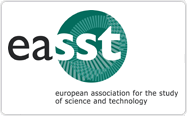De-Commodifying Software? Open Source Software Between Business Strategy and Social Movement
DOI:
https://doi.org/10.23987/sts.55135Keywords:
open source software, social movement, intellectual propertyAbstract
Focusing on open source software the origin, development and organisation of a process of de-commodification is examined in an industry that usually relies on strong provisions to protect intellectual property. Open source denotes a cooperative and voluntary mode of software development cross-cutting organisational boundaries and transcending relations of market exchange. Starting with the Open Systems Movement in the late 1970s, which was driven by business strategic and industrial policy interests and complemented by a spirit of mutual support in professional communities, a social movement type of collective action has emerged which develops knowledge as a public good. Competent communities share the norms of the hacker culture and cooperate in informal relations challenging the boundaries between private and public goods. But the open source idea has also been transformed into a business strategy by companies who provide basic software products for free and make money with complementary products and services.Downloads
Published
2001-01-01
Issue
Section
Research Papers
How to Cite
Holtgrave, U. and Werle, R. (2001) “De-Commodifying Software? Open Source Software Between Business Strategy and Social Movement”, Science & Technology Studies, 14(2), pp. 43–65. doi:10.23987/sts.55135.





